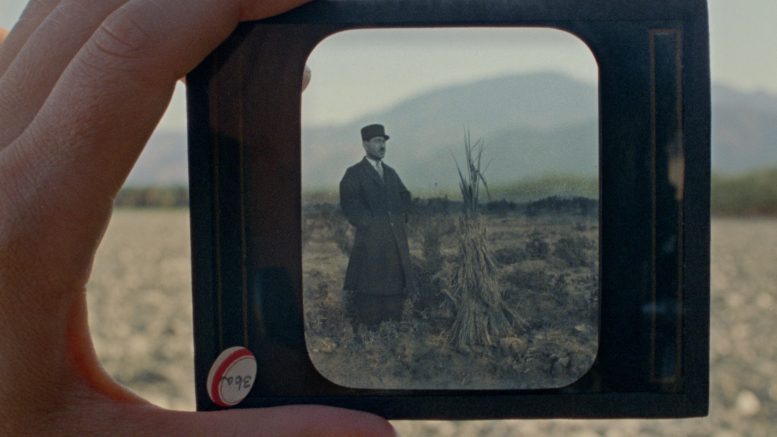The WNDX Festival of Moving Image returns this October, celebrating bold and boundary-pushing experimental films.
Founded in 2005 by local filmmakers Cecilia Araneda and Solomon Nagler, WNDX was created to reflect the independent and experimental film culture in Winnipeg. As it enters its 19th edition, the festival continues to champion underrepresented voices in the filmmaking world, with a focus on women, Indigenous artists and racialized filmmakers.
“The landscape has changed so [much] in Winnipeg that sometimes it’s hard for people to imagine what even 20 years ago was like,” said Araneda.
She emphasized the lack of opportunities for local filmmakers at the time. “Cinematheque itself has always existed and it’s always a really appreciated thing. But for a filmmaker a screening in a film festival is a career changing event.”
One of the highlights of the 2024 edition is the screening of Terra Long’s experimental documentary Feet in Water, Head on Fire, a film that takes viewers through California’s Coachella Valley.
Long, who is making her WNDX debut, said she is thrilled to be part of the festival.
“I’m so happy to show at WNDX,” said Long. “It’s my first time showing there, but I have long admired the program, and I know many people who have been involved in the festival and who have shown their work there. I think they have a focus on community which is really wonderful, and they also celebrate experimental film.”
Long’s film explores themes of community and place, centring on the Coachella Valley’s iconic palm trees.
“The palm trees need their feet in water and their heads in heat in order to grow,” Long explained, using the trees as a metaphor for the valley’s contrasting elements.
The film delves into the social and economic disparities in the region, known both for its wealth and its reliance on migrant agricultural workers.
“There’s a lot of polarity and conflict,” Long said. “It’s a place with incredibly wealthy gated communities of leisure, centres of people who play golf and yet it’s also home to many migrant workers who work the agricultural lands.”
In addition, Araneda reflected on how the festival has grown over the years to provide a platform for filmmakers to connect, exchange ideas and grow.
“It’s not just about connecting the works to the public,” she said. “It’s also about how they create an environment where filmmakers come and gather, and there’s a lot of interchange between filmmakers from all over the world.”
This community spirit is a hallmark of WNDX, and the festival’s unique focus on collaboration is also evident in Long’s work.
“The film was made very collaboratively, and it’s kind of a polyvocal film,” said Long. “I like to say it was made with people and with the place, not about people or the place.” She emphasized that the film was created with the people of the Coachella Valley, particularly those with close ties to the region’s palm trees.
Long’s deep connection to the natural world is central to her filmmaking process. She recounted how she began experimenting with film processing during a residency in Morocco, where she used dates to develop film.
This led her to the Coachella Valley and its imported palm trees, which originated in the Middle East. “I started developing the film with dates […], and I was also able just to observe the harvest and observe the relationship of people to the palm tree,” she explained.
As Feet in Water, Head on Fire makes its Prairie Region premiere at WNDX, Long hopes that the audience will not only experience the Coachella Valley through her lens but also reflect on their own relationships with land and history.
“I think it’s an invitation to think about land and land history,” Long said. She hopes the audience will understand how human intervention shapes the landscapes we live in. “I hope that they’re swept into it […], and I hope they are able to reflect on the place that they’re in also through this film.”
As WNDX has grown, it has introduced initiatives like the One Take Super 8 event, which gives local filmmakers a chance to experiment with short films.
Araneda recalled how this event launched the career of Ian Bawa, a Winnipeg filmmaker whose work at WNDX went on to be shown at the Toronto International Film Festival (TIFF).
“His film Strong Son was a One Take Super 8 event […] and then went to TIFF as a result of it,” she said.
Despite its success, WNDX has faced challenges, particularly in securing funding as a newer entrant among more established festivals.
“So much of the money is already going to these historically funded organizations,” Araneda noted. “Newer entrants just cannot get the same amount of funding, and so it becomes a bit of the chicken or the egg.”
The future of WNDX is uncertain, especially following the unexpected passing of Jaimz Asmundson, who played a key role in the festival’s production.
“I didn’t expect to be back at WNDX, but I’m back as the festival producer and again, working for free,” Araneda said. Reflecting on Asmundson’s legacy, she said, “Jaimz passed away unexpectedly […] and he would have wanted me to just, you know, do whatever I could as much as I could to keep this as a legacy to him.”
Araneda remains hopeful about WNDX’s future. “I’m just gonna keep it up — like just even existing past the next two years is what we’re focused on,” she said.
She also hopes to eventually hand off the festival to a new generation of filmmakers. “And I do know that Jaimz hoped for that too.”
For more information and scheduling, visit wndx.org.


